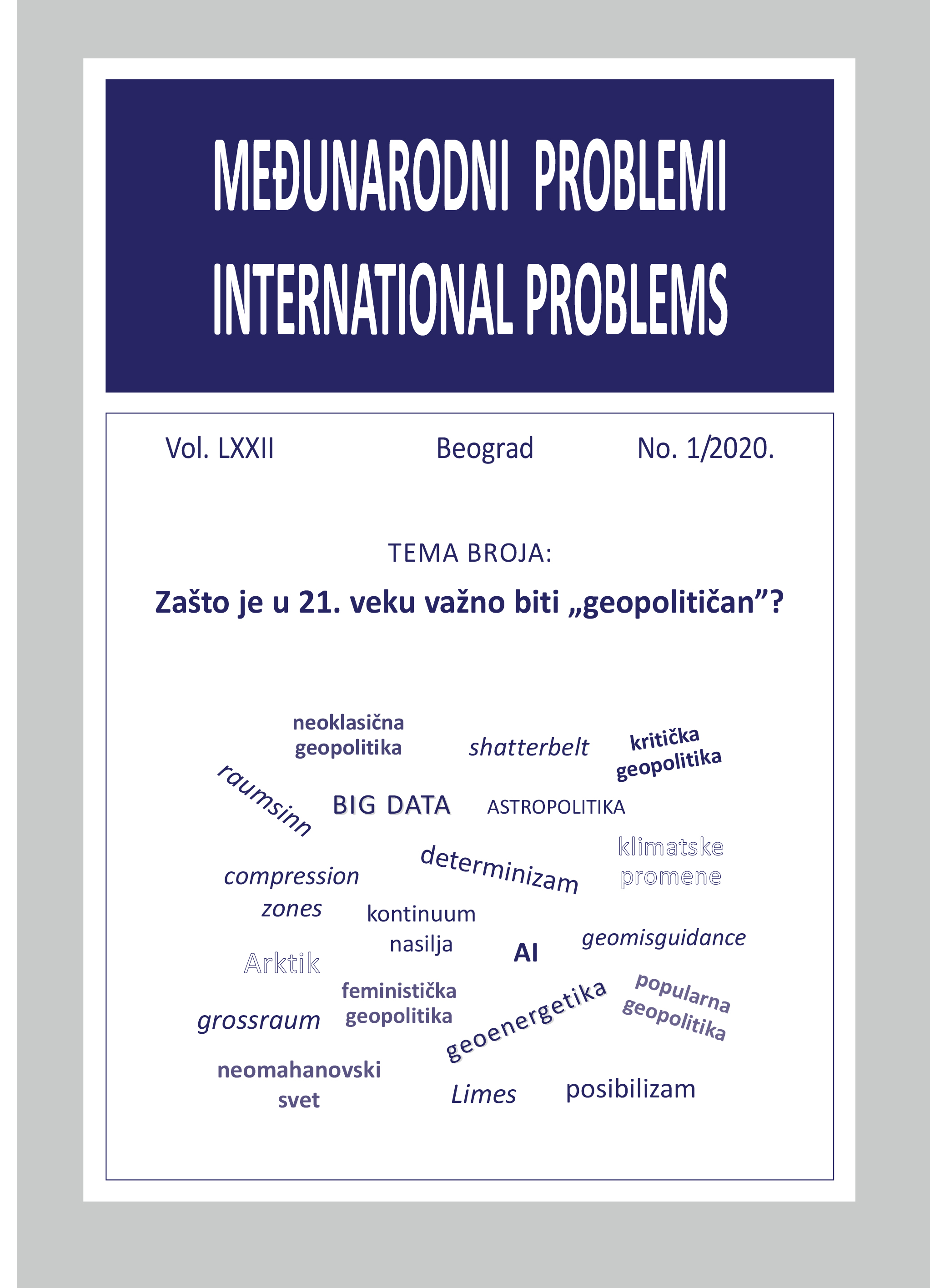Feministička geopolitika: osporeni buntovni izdanak geopolitičkog znanja
Feminist Geopolitics: Contested and rebellious offspring of geopolitical knowledge
Author(s): Srđan Korać T.Subject(s): Politics / Political Sciences, Geopolitics
Published by: Институт за међународну политику и привреду
Keywords: feminist geopolitics; political geography; feminism; gender studies; international relations
Summary/Abstract: The paper discusses the general features of the theoretical, epistemological, and methodological framework of a feminist approach in the early 21st-century Geopolitics with the aim to discover how its proponents challenge the established “truths” of (neo)classical geopolitics and make innovative interventions to “repair” and improve the knowledge produced in critical geopolitics. Being the most recent offspring of geopolitical knowledge that emerged only three decades ago, feminist geopolitics provoked an immediate backlash from the colleagues from the mainstream political geography in terms of recognising its disciplinary position. The author gives an overview of the body of a significant feminist geopolitical work drawn up based on a selected batch of most important international journals and edited volumes published since 2001. The author argues that the contribution of theoretical, epistemological and methodological insights of feminist geopolitics should be located in counterbalancing of the rigidity of the discipline mainstream, and in insisting on the analysis of the intersections of the public (state, global) and the private/intimate (body, home), interrelatedness of embodied life practices and abstract/bureaucratic geopolitical projects, as well as on the introduction of post-positivist methodological approaches and techniques. The paper systemises the most important feminist research questions, and particularly legitimate topics of the day, which were ignored or missed by the mainstream geopolitical research. The author concludes that the feminist approach still remains a dissident body of knowledge within the geopolitical thought, but with an emancipatory potential in creating theoretical and political space in which to articulate a more responsive notion of geopolitics – taken both as knowledge and practice – that might address victimisation of marginalised population entangled in imperial projects.
Journal: Међународни проблеми
- Issue Year: LXXII/2020
- Issue No: 1
- Page Range: 179-212
- Page Count: 34
- Language: Serbian

